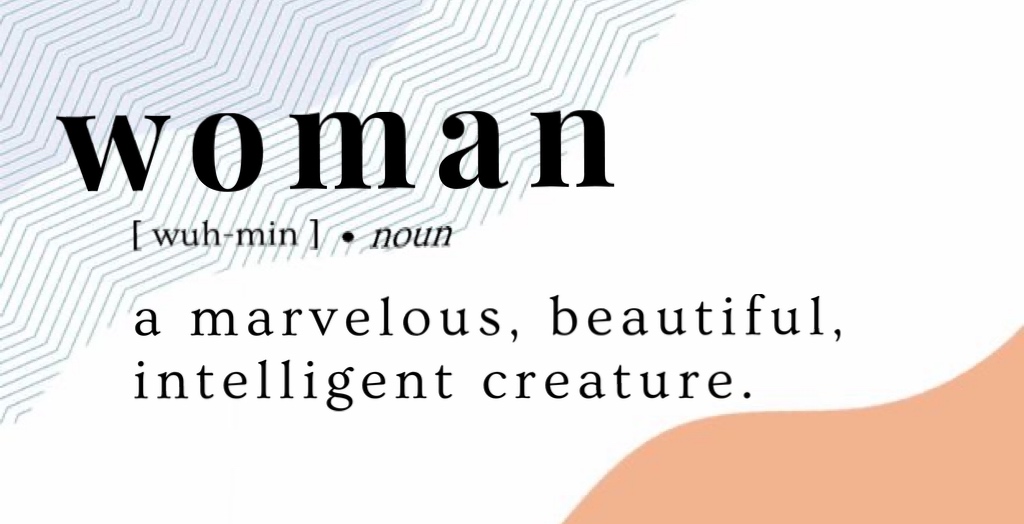By Maia Murphey
Synonyms: baggage, bint, wench, frail, bird, and bitch.
These are all what used to come with The Oxford English Dictionary’s definition of a woman. A reputable source like the Oxford University Press (UOP) should be the last organization to use sexist and derogatory terms to describe women.
Reducing the harm that is caused to young women and girls starts by looking at our language and how we define the word “woman”. A petition started in June by Maria Beatrice Giovanardi, a London-based communication strategist, called to change and expand the Oxford Dictionary and Thesaurus of English’s definition of the word “woman”.
At the time when the petition came out, the definition of “woman” in The Oxford English Dictionary gave these examples:
- “Ms September will embody the professional, intelligent yet sexy career woman”;
- “If that does not work, they can become women of the streets”;
- “male fisherfolk who take their catch home for the little woman to gut”;
- “I told you to be home when I get home, little woman”.
These examples portray women as sex objects, subordinate and/or an irritation to men.
Not only were these examples sexist, but there were a mere five examples for “woman” compared to 25 examples for “man”.
How has an institution like the OUP gotten away with portraying women this way? What message does it send to internet users when these misogynistic definitions are used by popular search engines such as Google, Bing and Yahoo? Giovanardi’s petition brought attention to these pressing questions.
The petition called for the OUP to:
- Eliminate all phrases and definitions that discriminate against and patronize women and/or connote men’s ownership of women;
- Enlarge the dictionary’s entry for “woman”;
- Include examples representative of minorities, for example, a transgender woman, a lesbian woman, etc.
Giovanardi’s campaign and petition — which has now reached over 34,000 signatures — successfully got the attention of OUP.
The definitions and synonyms cited throughout the dictionary are based on evidence from real-life uses that determine the meaning of the words. In other words, these so-called “synonyms” for the word “woman” are common enough terms to have been put (and kept) in the Oxford Dictionary.
According to a statement by OUP: “We have expanded the dictionary coverage of ‘woman’ with more examples and idiomatic phrases which depict women in a positive and active manner … we have ensured that offensive synonyms or senses are clearly labelled as such and only included where we have evidence of real world usage.”
Even though the definition has been changed, that does not mean “real world usage” of derogatory terms will simply cease.
Imagine a man saying, “Oh! Bitch is now listed as an ‘offensive’ synonym for women in the Oxford English Dictionary? I guess I should stop referring to them that way!”
Yeah… I can’t imagine that either.
OUP said their dictionaries “reflect, rather than dictate, how language is used. This is driven solely by evidence of how real people use English in their daily lives. ‘This independent editorial approach means that our dictionaries provide an accurate representation of language, even where it means recording senses and example uses of words that are offensive or derogatory…’”
The word bitch — defined as “a spiteful, unpleasant, or disliked woman” — continued to be listed as a synonym for the word “woman” even though it’s labelled as “offensive”. On the other hand, the word dickhead — defined as “a stupid, irritating, or ridiculous man” — is not included in the list of synonyms for men because of its “vulgar slang”.
On a more positive note, the Oxford English Dictionary previously included “a man’s wife, girlfriend, or lover” in its definition of “woman.” It now reads “a person’s wife, girlfriend or lover.” The same was done to the definition for “man” which was a successful improvement for the LGBTQ+ community.
Giovanardi said she is “85 percent happy, [the definition] is still 15 percent sexist, it’s a big improvement and a big win for the LGBT community which I think is a huge thing, that they acknowledge others sorts of love, and it’s not a man’s wife or a woman’s wife, it’s a person’s wife.”
Other words that have been modified after their “gender diversity review” are “housework” and “high-maintenance” which previously used female pronouns in their example sentences.
The Oxford English Dictionary’s work to redefine outdated terminology is a small step forward for equality. OUP claims it has developed an ongoing project to re-examine their treatment of language. They’ve recently worked with terms for race and racial diversity along with non-binary gender identities, and plan to continue investigating their dictionary’s terms.
“Bint” and “bitch” have still not been removed from the list of synonyms and are rather labeled as “offensive” and “derogatory”.
Hopefully they will soon realize that “bitch” is just as vulgar as “dickhead” and should also be considered too derogatory for their dictionary.
Maia Murphey (she/her) is a Staff Writer for Bell Magazine. She is a second-year student at UW–Madison majoring in Nonprofit Leadership and Political Science with certificates in Public Policy, Global Health, and Criminal Justice.
